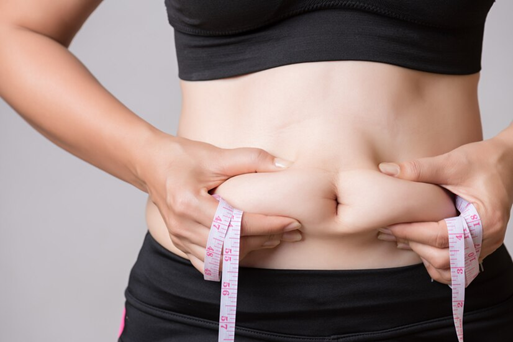Obesity (Sthaulya)
Accumulation of excess fat in the body may lead to negative effects on health which causes increased health problems and reduced life expectancy.
A majority of conditions like diabetes, heart diseases, hypertension, stroke, arthritis, and cancer burden are attributed to obesity.
In Ayurveda, it is considered one of Santarpanottha Vikaras (a condition caused by consumption of excessive calories).
Causes of Obesity
• Increased intake of foods high in fat and carbohydrates
• Overeating and irregular eating habits
• Lack of physical activities
• Genetics, endocrine disorders, medical or psychiatric illness
• Excessive daytime sleeping
Symptoms
• Breathlessness even on little exertion
• Lack of interest in doing daily activities
• Profuse sweating with a foul odour
• Excessive hunger and excessive sleep
• Frequent feeling of tiredness
Ayurvedic ways to help with Obesity
Note: These treatments are done under the strict supervision of a registered Ayurvedic Physician
Shamana (Palliative) treatment
• Langhan (Fasting)
• Ama pachan (oral use of digestives to augment the fat metabolism)
• Ruksha Udwartan (Dry medicated powder massage)
• Heavy and non-nourishing diet
• Physical and mental workout
Samshodhana Chikitsa (Purificatory procedures)
• Panchakarma
• Vaman (Therapeutic emesis)
• Virechan (Therapeutic purgation)
• Lekhan vasti (Medicated enema)
• Drugs like Guduchi, Vidanga, Musta, Sunthi, Amla, Vaca, Daruharidra, Guggulu, etc.
• Compound Formulations like Trikatu, Navak Guggulu, Triphala Guggulu, Vidangadi Churna, Takrarishta, Navayasa lauha, Arogya Vardhini Vati etc.
Preventive measures
Following an unhealthy diet result in the building of fatty tissue in the body, causing weight gain and obesity. Physical activity reduces the energy imbalance between calories consumed and calories expended, resulting in weight gain. Hence, intake of a healthy diet, which includes adding more fiber to your diet, adapting to an active lifestyle, and practicing Yoga and Meditation, is highly recommended.
Other lifestyle modifications include-
• Mild to Moderate exercise
• Daily brisk walking for 30 minutes
• Avoid sedentary habits
• Avoid excessive sleep (especially mornings)
• Avoid Alcohol and Smoking
Do’s and Don’ts
Do’s
• Consume low-fat and low-calorie food
• Consume more proteins and fiber
• Consume more steamed or boiled vegetables
• Take frequent small meals to avoid food cravings
• Drink skimmed milk instead of whole milk
• Include cabbage in your daily meal
• Use warm water for drinking
• Include lemon in your diet
Don’ts
• Do not consume high carbohydrate vegetables like potato and rice
• Do not consume more dairy products, fried and oily foods, fast foods, or excess salt
• Do not use excessive salt in meals
It is advised to focus on supporting healthy eating and active living. Ayurvedic treatments are to be done under the strict supervision of an ayurvedic physician.



